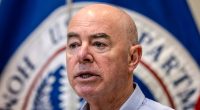A Palestinian American poet considers the question: what is the task of the diasporic witness in a time of atrocity?
A few weeks ago, I got an upper molar filling at one of those hip dental practices targeted towards millennials, all green tiles and personalized screens. In the dental chair, I watched an Anthony Bourdain episode on Beirut, then lunged for my phone as soon as I was alone.
For months, I’ve watched hundreds of clips of dead children. Men with their limbs blown off. Babies whose faces are covered in burns. Mothers cradling white-shrouded children. These children, these babies and men, are somewhere I’ve never been, somewhere my father was born, somewhere my grandparents, my uncles, my great-grandparents, lived for years. For months, I’ve watched American officials scrunch their foreheads in consternation at press conferences. My dissociation has become more norm than exception: I walk down Metropolitan Avenue in Brooklyn as though I’m gliding, as though someone is transporting my body through sheer will. I enter rooms and freeze, stop speaking mid-sentence, forgetting where I’d began. My grief is dormant during the day, masked by alternating helplessness and frenetic bursts of energy.




